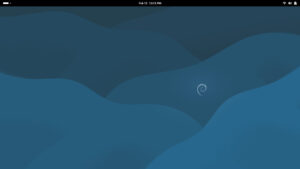The 48 hour turnaround is looking like the norm for AlmaLinux, a feature-by-feature clone of Red Hat Enterprise Linux.

Last Friday AlmaLinux announced the beta release of version 8.6 of its eponymous Linux distribution. On Thursday, the stable, production ready release of AlmaLinux 8.6, code named “Sky Tiger,” was pushed out the door, less than 48 hours after the release of Red Hat Enterprise Linux 8.6.
In case you’re new to the neighborhood, AlmaLinux is one of several distros that are vying to be replacements for CentOS, a distro that for 17 years offered users a feature-for-feature downstream copy of RHEL, until Red Hat ended the project at the end of last year, and repurposed the name (as CentOS Stream) to apply to RHEL’s nightly builds.
What distro are you using to replace CentOS?
- AlmaLinux (52%, 103 Votes)
- Rocky Linux (27%, 53 Votes)
- I don't use CentOS (6%, 12 Votes)
- RHEL (6%, 11 Votes)
- Something else (4%, 7 Votes)
- EuroLinux (2%, 4 Votes)
- Oracle Linux (2%, 4 Votes)
- openSUSE Leap (2%, 3 Votes)
Total Voters: 197
Like the CentOS of old, AlmaLinux is a feature-for-feature clone of RHEL, with version numbers that match RHEL’s versioning. Users can expect AlmaLinux 8.6 to handle their workloads exactly as if they were being run on RHEL 8.6, but without having to pay Red Hat for subscriptions.
The distro is available for x86, Power, and Arm architectures, and can be downloaded from the project’s mirrors. Support for IBM Z systems will be available starting with AlmaLinux 9, (already out in beta), which will see it’s ready-for-prime-time release within hours after the stable release of RHEL 9. At Tuesday’s Red Hat Summit, Red Hat’s VP of Linux engineering, Mike McGrath, said RHEL 9 should be released sometime next week.
“Our Live images, Raspberry Pi, Cloud, and Container image updates are in process too, so stay tuned to catch the updates,” the project said in a blog. “Don’t blink, you might miss them.”
Like RHEL 8.6, AlmaLinux 8.6 contains web console enhancements and some brand new System Roles that make system administration simpler. Security updates include upstream versions for the SCAP Security Guide, OpenSCAP, and other packages and improvements. More information can be found in the release notes on the projects website.
Christine Hall has been a journalist since 1971. In 2001, she began writing a weekly consumer computer column and started covering Linux and FOSS in 2002 after making the switch to GNU/Linux. Follow her on Twitter: @BrideOfLinux





